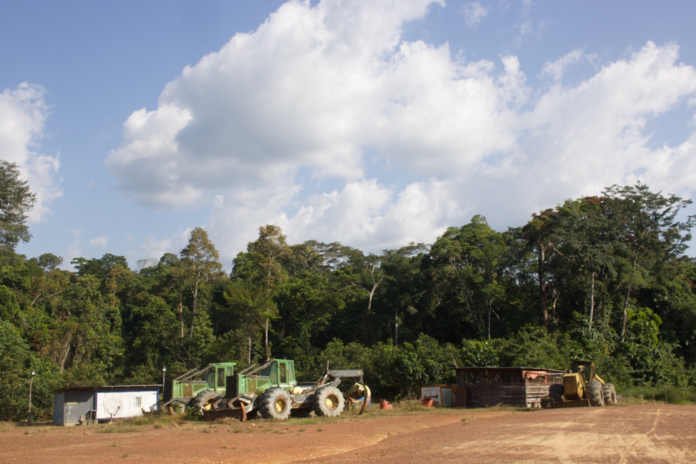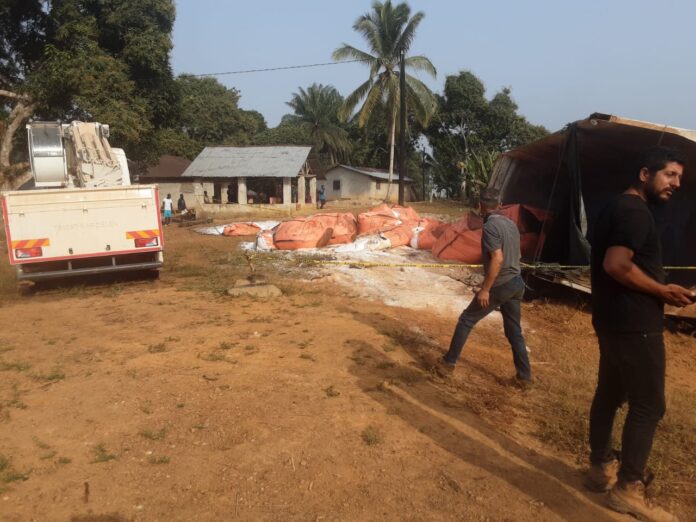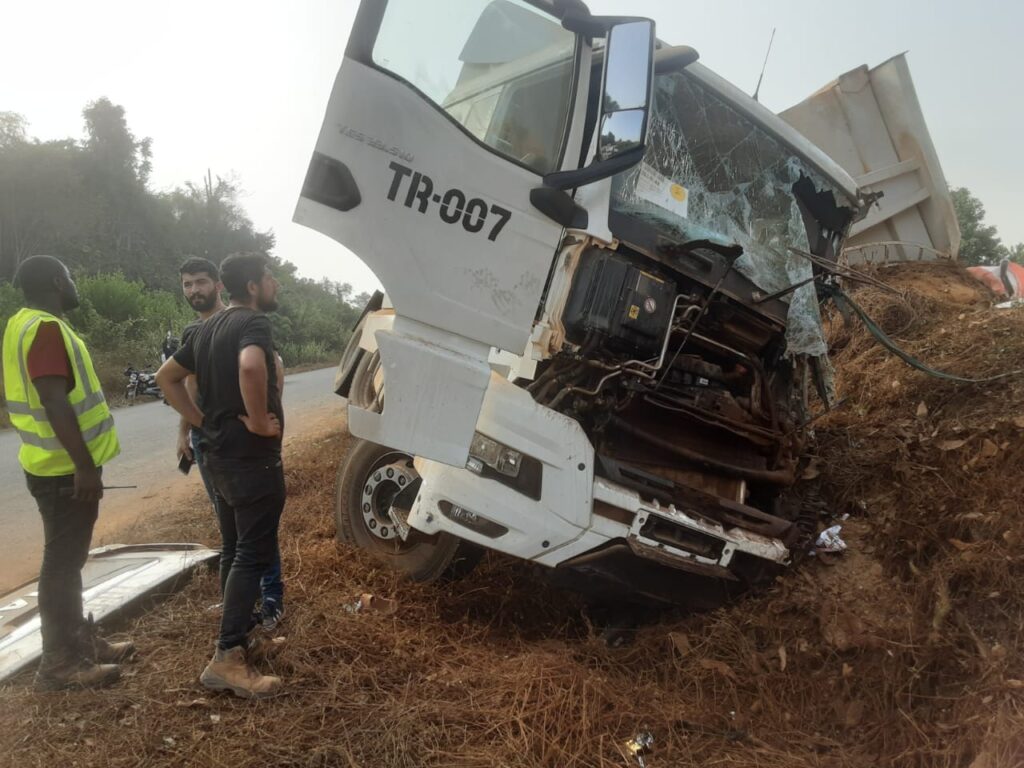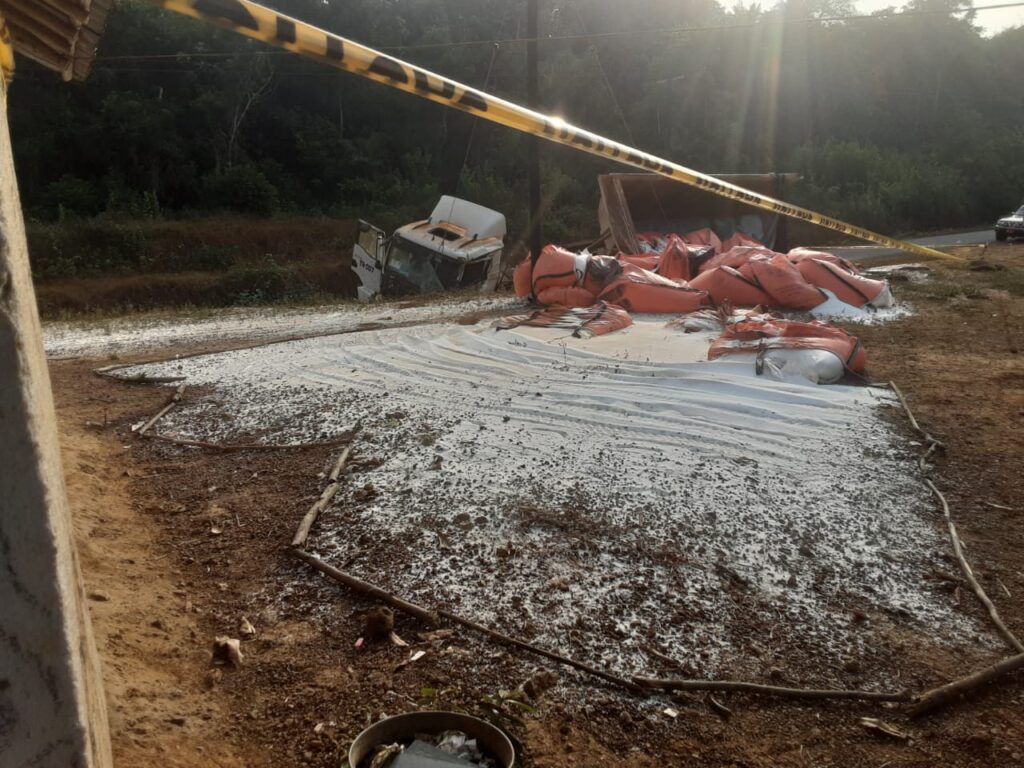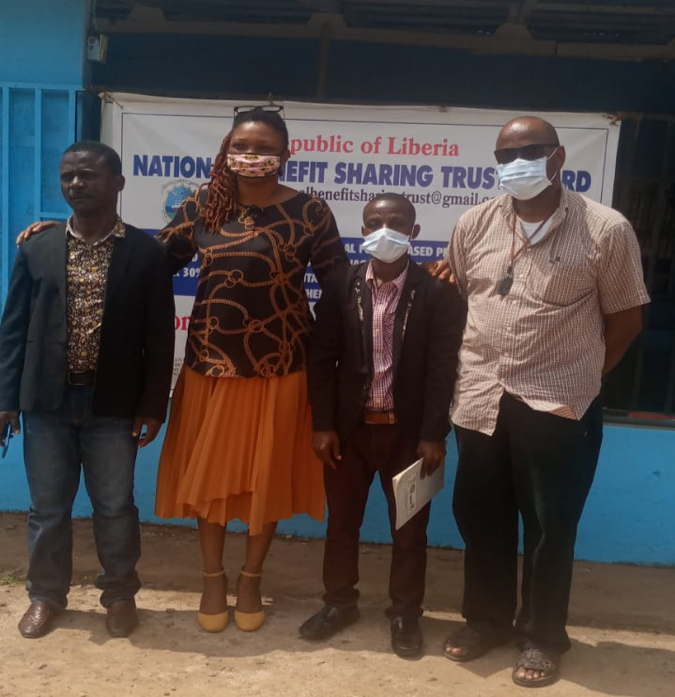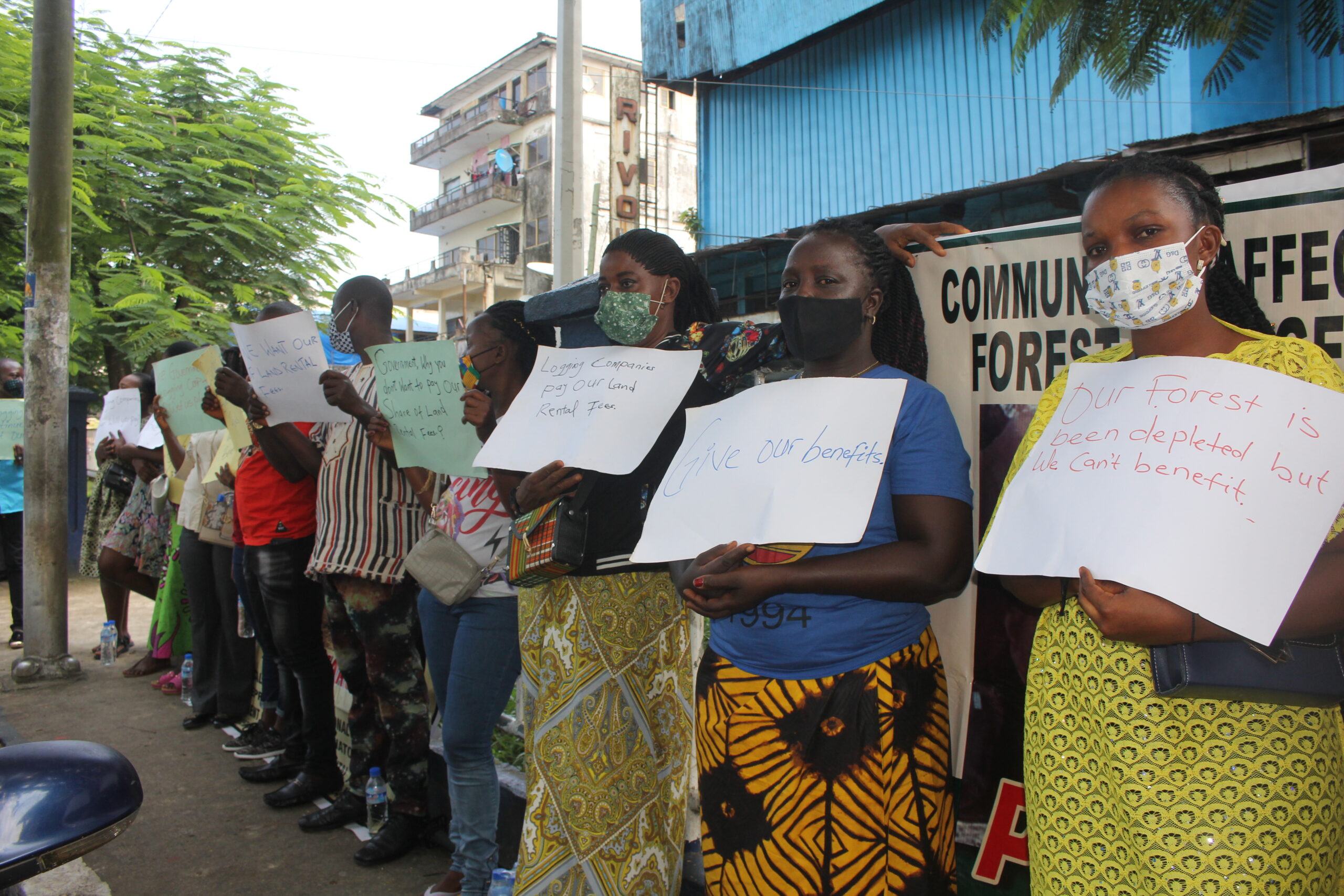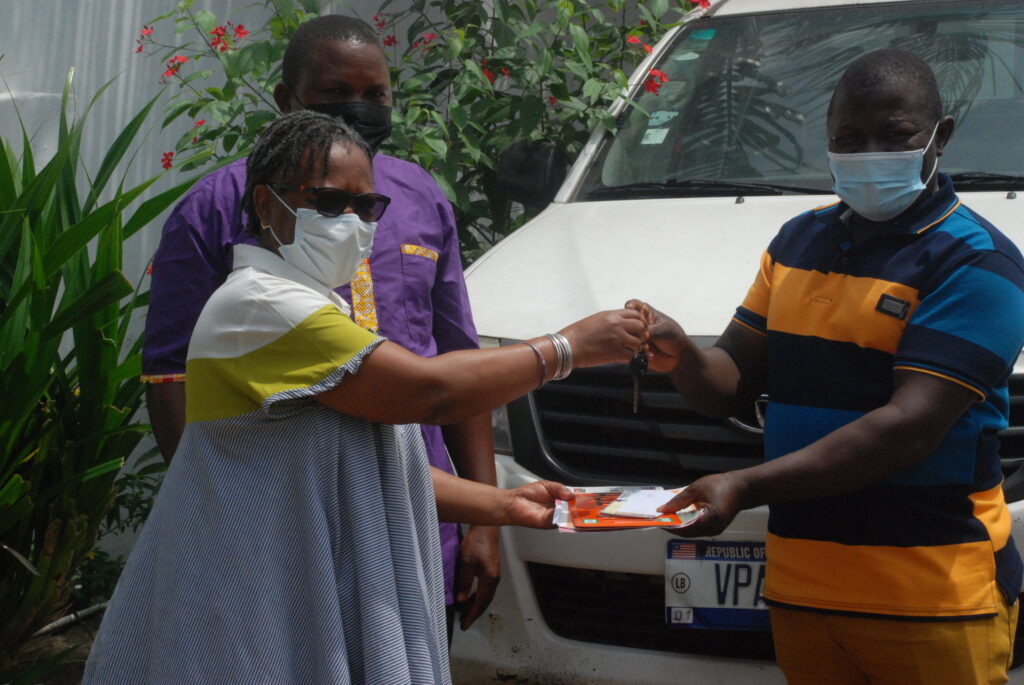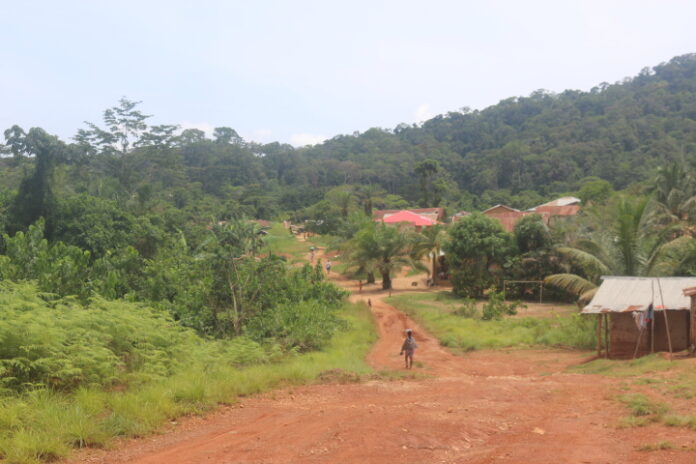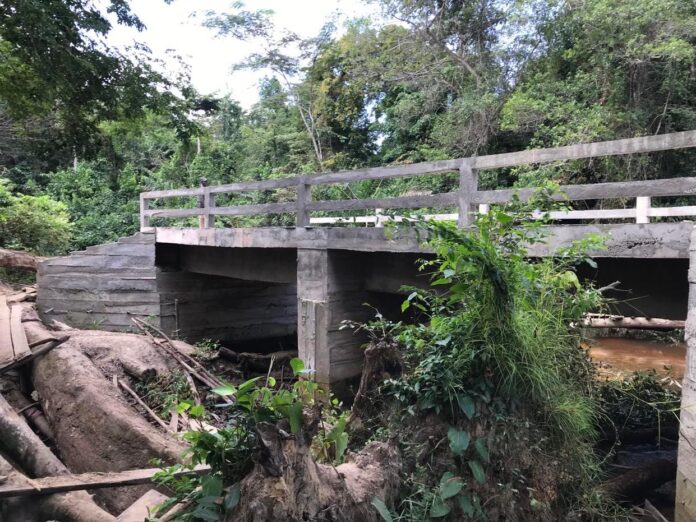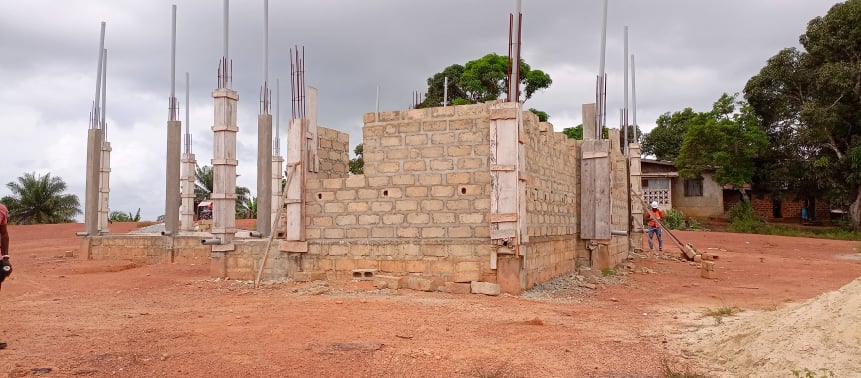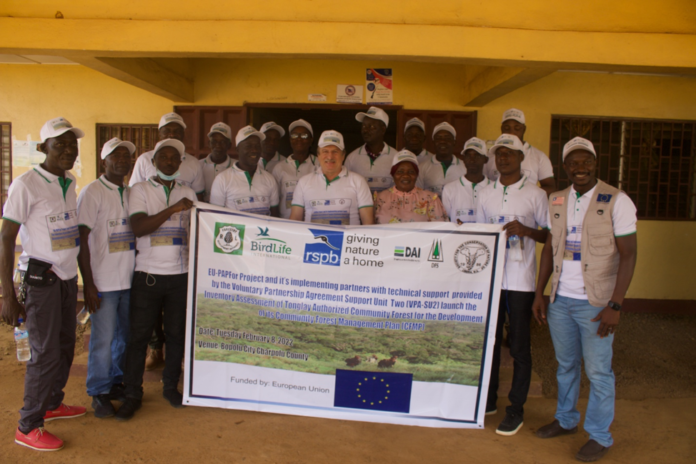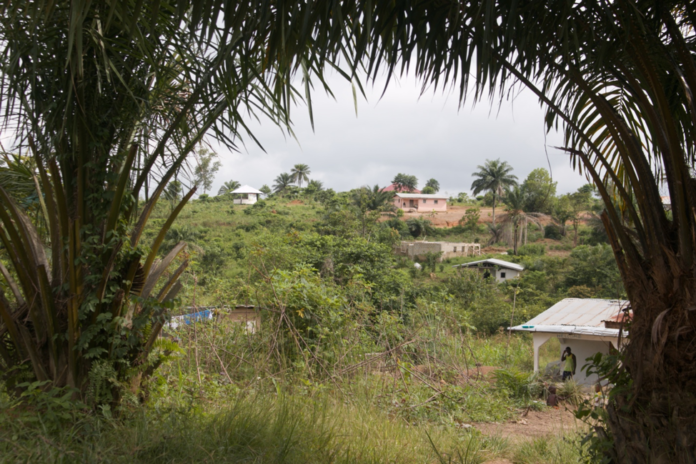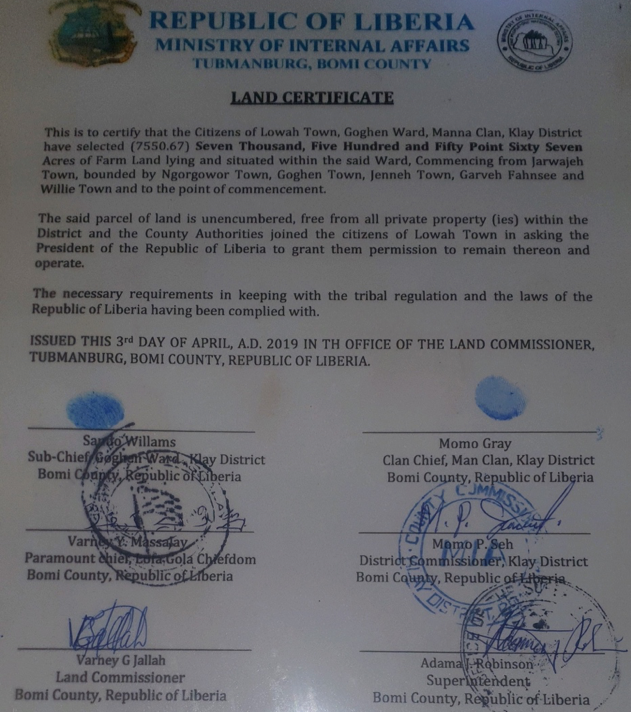Top: International Consultant Capital’s camp in Gbi-Doru District, Nimba County. The DayLight/James Harding Giahyue
By James Harding Giahyue
GBI-DORU DISTRICT and COMPOUND NUMBER TWO – When International Consultant Capital (ICC) stopped its logging operations in Nimba County in 2019, it was already owing villagers over US$55,000 having used their land and felled their timbers, leaving behind broken development promises and an estimated 7,000 logs, according to locals.
ICC and the Gbi-Doru Administrative District had signed the five-year social agreement in 2010 as part of forest management contract area K—commonly called FMC-K Nimba in the forestry sector—covering 127,842 hectares. FMC-K is the largest logging concession in Liberia, extending to River Cess and Grand Gedeh and totaling 266,910 hectares of woodlands.
The same year ICC parked off from Gbi-Doru, African Wood & Lumber Company (AWL)—now owned by Italian businessman Cesare Colombo, ICC’s CEO—signed logging deals with two community forests. In January, Colombo secured the agreement with Gbarsaw & Dorbor for 21,230 hectares of forest in Norwien District, River Cess County for five years. Later in July, he concluded the deal with Marblee & Karblee between Compound Number One and Two, Grand Bassa, giving him logging rights in its 24,355-hectare woodland for the same duration. AWL had been established in 2015 by a Liberian businessman called Krangar Logan and Colombo became its sole shareholder as of March last year, the company’s article of incorporation shows.
Like ICC in Gbi-Doru, AWL’s agreements with Gbarsaw & Dorbor and Marblee & Karblee have been marred by broken promises and indebtedness to the communities over land and log-harvesting fees. With no clauses in the deals for things like schools and clinics commonplace in logging contracts, both communities solely rely on harvesting fees to conduct development projects such as roads, schools and clinics.
AWL owes Gbarsaw & Dorbor US$5,000 for human resource development, and US$37,786 for land rental fees, the leadership of the community forest told The DayLight.
Colombo blames his company’s indebtedness to that community on illegal chainsaw milling. Also called pit-saw milling in the Liberian logging industry, chainsaw milling involved the use of chainsaws to rip logs into planks. The practice, which is currently unregulated, has increasingly become a nuisance across the forestry sector.
The situation in Marblee & karblee is even worse. The company owes the community US$39,000 for the use of its forestland, and US$6,000 for scholarships and has failed to pave dirt roads in that area in the last three years, according to locals. The Forestry Development Authority (FDA) did not grant our request for AWL’s record of payments and production, though the National Forestry Reform Law guarantees public access to such information. However, it harvested 6,136.59 cubic meters of logs from November 2020 to June last year, records of the company’s production The DayLight obtained show. That means the company owes the villagers US$,38,353 representing harvesting and development fees in line with their agreement.
“We are coming to have [a] meeting to write the company. If they don’t want the forest again, let them give it back to us,” says Arthur Bayogar, a community forest leader.
Colombo again denies any wrongdoing, adding that the company had also not paid the Marblee & Karblee the full amount due to illegal chainsaw-milling activities. He demands the community pays his company for every log the pit-sawyers harvested.
“The outstanding payment [is] due to the pit-sawing activity that is not allowed in the concession,” Colombo tells The DayLight in an emailed interview. “And for each log felled, compensation to the company [needs] to be calculated.”
‘Taking advantage’
Forest governance campaigners say Colombo’s move from FMC- K Nimba to community forests in River Cess and Grand Bassa is part of a new trend across the forestry sector. The last five years have seen companies and individuals associated with large logging agreements turn to community forests.
Under Liberian laws and regulations, companies enter logging concessions with the government but sign community forest deals directly with villagers. A guiding principle of forestry reform in Liberia, the scheme was meant to ensure rural towns and villages benefit from forest resources denied them for generations. But that has not worked for many communities, with companies being indebted to locals rife, some for over a decade.
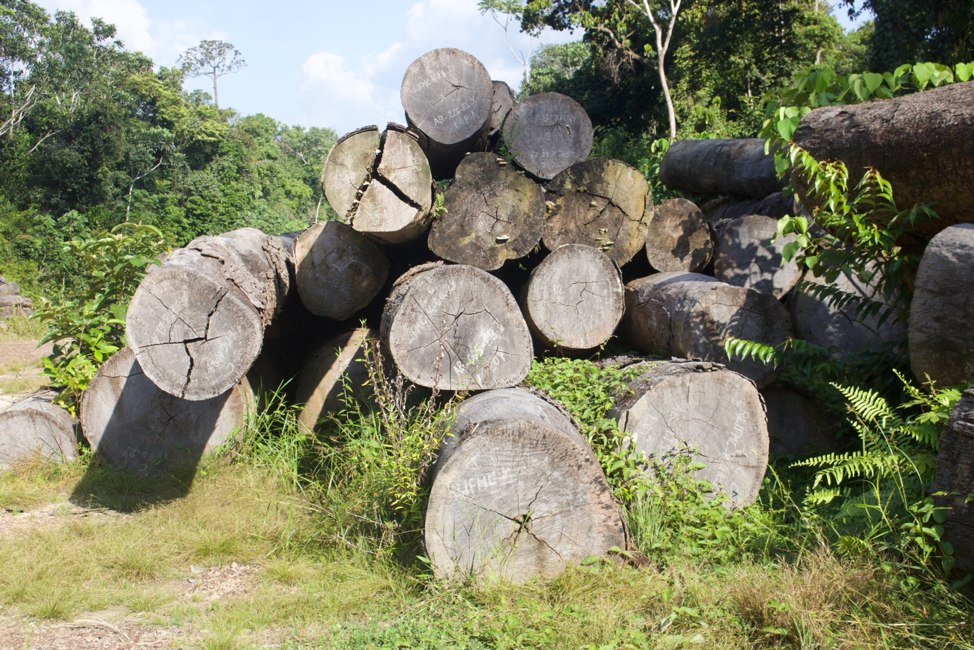
Andrew Zelemen, a campaigner with the National Union of Community Forest Development Committee (NUCFDC), says Colombo and other businesspeople are exploiting the weakness of communities.
“My understanding is that some of these companies are taking advantage of the limited capacity of community members who are awarding these concessions to them,” Zelemen, whose group advocates for communities affected by large-scale concessions, tells me in a mobile phone conversation from Lofa. He says Colombo needs to explain why he left FMC-K for Gbarsaw & Dorbor and Marblee & karblee.
“Something is wrong somewhere and something is happening, and these companies need to tell us what they are doing the Liberian people’s forests,” he adds.
Bonathan Walaka, the secretary of the National Union of Community Forest Management Body (NUCFMB), agrees with Zelemen and says he understands Colombo’s shift to community forests.
“The reason is just simple,” Walaka says. “The land rental fees companies pay the government in FMCs are more than what they pay the government in community forests.” He argues Colombo saves more money from failing to pay Marblee & Karblee, for instance, than refusing to pay Gbi-Doru. By lay, companies pay communities 30 percent and the government 70 percent in land rental fees for large concessions such as FMC-K and 55 and 45 percent in the same order for community forests. By law, land rental fees are the product of US$1.25 and the size of hectares of a given forest.
“The government has the power to have the companies pay its share of land rental fees but the communities don’t,” Walaka says.
Walaka is referencing the law correctly. The FDA is not a party in community forest agreements but approves them as the government institution that oversees the forestry sector. The laws and regulations governing the sector are largely communities-centered.
However, in the cases of Gbarsaw & Dorbor and Marblee & Karblee, the FDA did not enforce those laws. For instance, despite debt to both communities, the FDA sanctioned three shipments of a combined 7,286.24 cubic meters of timbers produced by AWL between February and April last year, according to the record of the exports we got. That is a violation of the Ten Core Regulations, which call for firms to be clear of all forest-related dues before export. It is even sufficient ground for the FDA to terminate AWL’s agreement per the National Forestry Reform Law.
No law or regulation bars an individual associated with a company that has outstanding payments from obtaining a logging contract. But Jonathan Yiah, the lead forestry campaigner at the Sustainable Development Institute (SDI), thinks FDA did not exercise its oversight in Colombo’s community forest deals. He says it should have disapproved the Italian businessman’s deal with Gbarsaw & Dorbor and Marblee & Karblee over his connection to ICC and FMC-K.
“FDA allowing this to happen aids companies to be in huge arrears with communities,” Yiah says in an emailed interview. “FDA needs to ensure proper due diligence, it has responsibility for, is conducted.
“Once due diligence is done on each of the companies currently operating, the problem with logging operations in community forest may be reduced,” he adds.
Colombo refutes those criticisms, counterarguing that he invested millions in the communities to “create a cordial and friendly relationship” with locals.
“We are always committed to our obligation, and we never undermine the intent of the forestry reform in Liberia,” Colombo says, despite evidence showing the opposite.
The FDA did not grant our request for an interview on the matter. The DayLight wrote Deputy Managing Director Joseph Tally for the interview last month but did not get a reply up to press time.
This story is a part of The DayLight’s Forest Accountability and Transparency Reporting Series.

